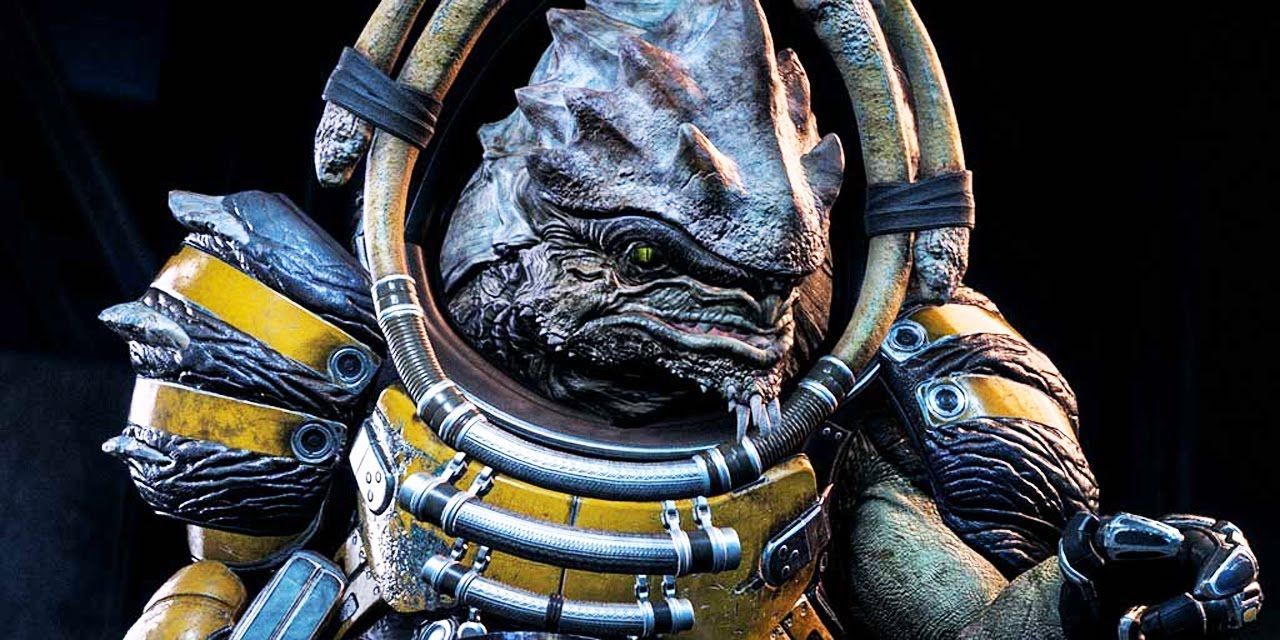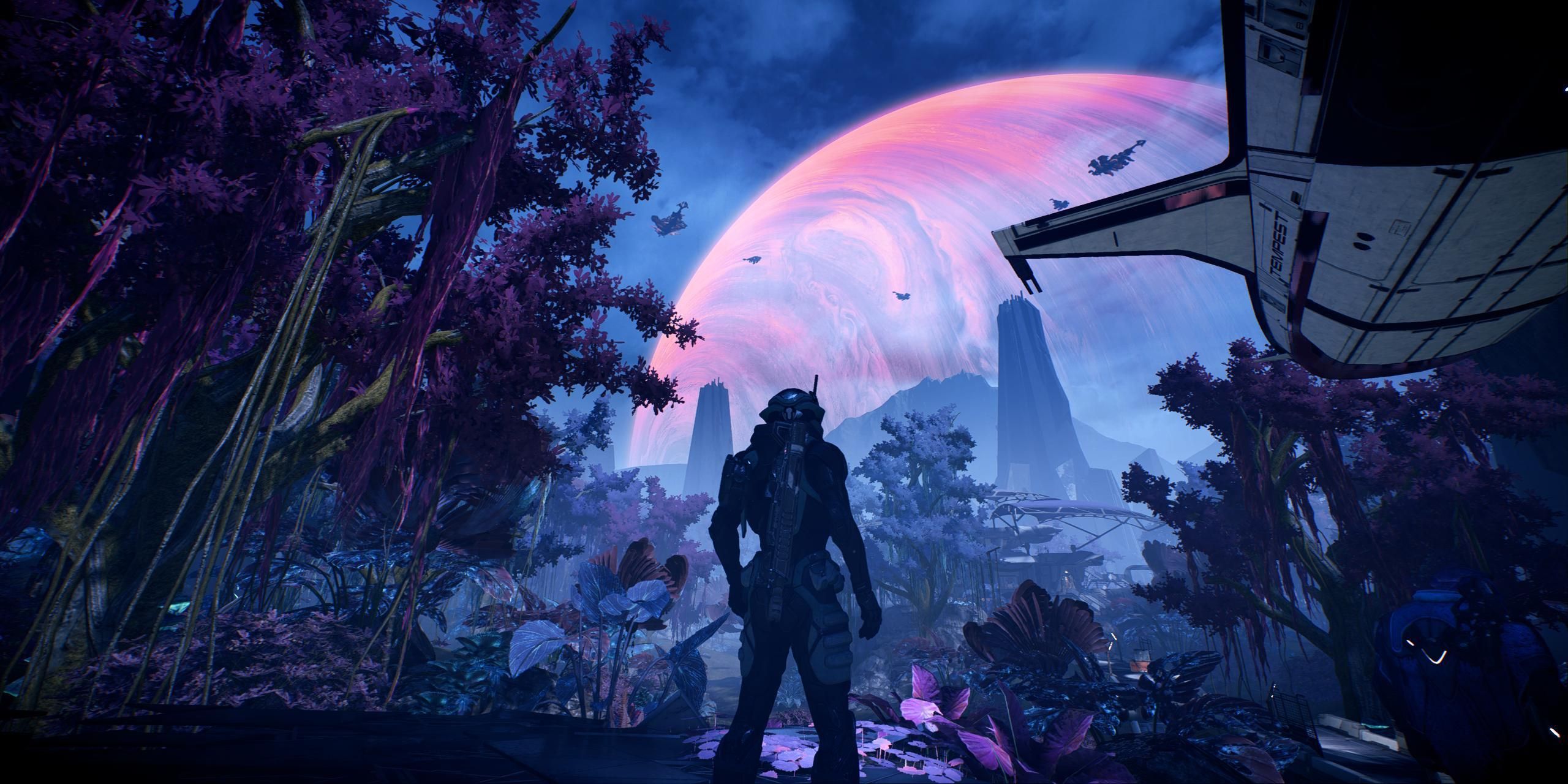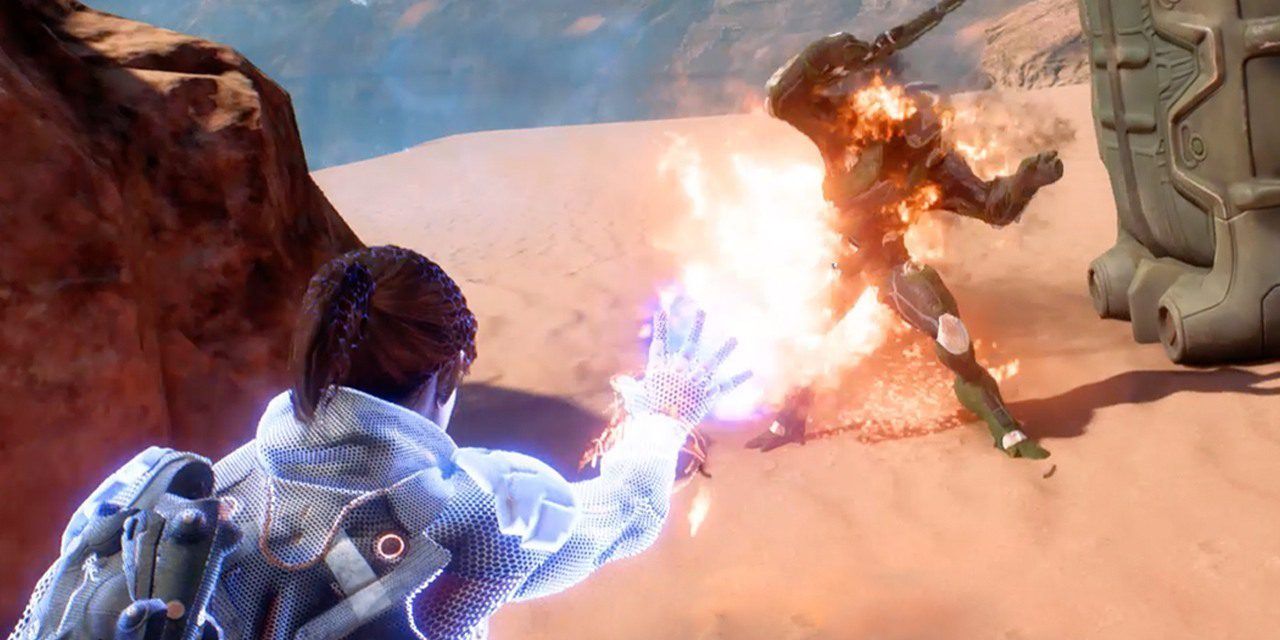Bioware's Mass Effect: Andromeda was pretty divisive when it released back in 2017. As a follow-up to the infamously controversial ending of Mass Effect 3, the game had to find an effective balance between breaking new ground and paying tribute to what had come before. Plagued by development troubles and technical issues, Andromeda was a misfire in many ways.
However, many of the core concepts that went into Mass Effect: Andromeda are actually very effective. While the surface may be rough and disheartening, hidden beneath it is a great idea for a fourth Mass Effect title. Unfortunately, many of these great ideas were overlooked or under-appreciated upon release.
New Galaxy, Old Faces
The infamous ending of Mass Effect 3 forever changes life in the Milky Way galaxy, regardless of which choice the player makes. The repercussions of these choices, and the fact that all three have wildly different outcomes, made it nearly impossible to write a sequel based in the same galaxy. This makes Bioware's decision to set Mass Effect: Andromeda in a brand new galaxy smart and, arguably, mandatory.
Andromeda's premise, which sees classic Mass Effect races sending thousands of their own to colonize the Andromeda galaxy, is a great idea for a sequel. The humble goal of establishing new homes for these races also successfully pulls back the series' stakes after the climactic events of Mass Effect 3. Exploring a brand new galaxy and meeting brand new races like the peaceful Andara, brings back a sense of wonder and discovery that was lost after the first game. The presence of recognizable races from previous games, meanwhile, ensures that Andromeda isn't completely disconnected from the previous trilogy.
Open Planets to Explore
The series' gameplay changed dramatically between Mass Effect and Mass Effect 2, with most fans viewing the sequel's more action-focused combat as a big improvement. However, one part of gameplay that was unfortunately removed was the ability to freely explore certain planets, either on foot or in the M35 Mako vehicle. The second and third games focused almost exclusively on linear levels, with some vehicle sections sprinkled in to break up the pace, which became a bit repetitive.
Mass Effect: Andromeda returned to the series' roots by featuring large, expansive areas to explore on multiple planets. The player can travel on foot or use the six-wheeled NOMAD vehicle to traverse a variety of alien landscapes. This brings a feeling of discovery back to the series and makes each planet feel like a living world rather than a linear video game level. Each world has side missions to complete and resources to scavenge, which ultimately tie back to the main goal of the game, making each one feel unique.
Fast Real-Time Combat
Mass Effect's combat did evolve between the first and second games, but the style stayed largely consistent. Players were expected to hide behind waist-high walls, throw out offensive abilities and order their squadmates between pieces of cover. Targeting enemies and selecting abilities slowed down time, making combat feel sluggish. Certain abilities could really spice things up, like the Vanguard's aggressive Charge attack, but sticking to cover was usually the best way to go.
Andromeda speeds up combat considerably, with ability selection no longer pausing the action. The addition of a jetpack gives players tons of mobility on the battlefield, allowing for fast dodges or huge vertical leaps over the enemy. Fights also typically take place in more open environments this time, rather than in tight corridors. The player character automatically takes cover when near an appropriate object or piece of the landscape, making the mechanic much faster and more organic.
Mass Effect: Andromeda's animations, dialogue and story were heavily criticized, criticisms that were justified. However, as a blueprint for a fourth Mass Effect game, Andromeda has a lot going for it. The game takes the series to a brand new galaxy, allows players to explore large open areas of various planets and gives combat a huge speed boost. While the game isn't perfect, it is entirely possible for Bioware to take this established formula and refine it into something much more impressive.




